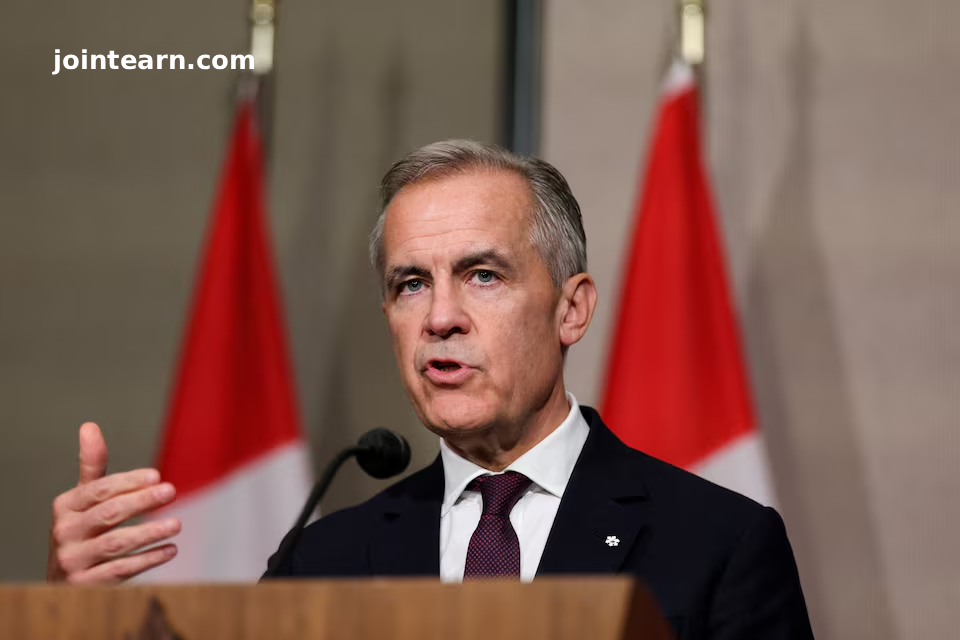
Gyeongju, South Korea – Canadian Prime Minister Mark Carney confirmed on Saturday that he had apologized to U.S. President Donald Trump over a controversial anti-tariff political advertisement, and had advised Ontario Premier Doug Ford not to air it. Carney made the remarks while speaking to reporters after attending an Asia-Pacific summit in South Korea.
The apology, delivered privately at a dinner hosted by the South Korean president on Wednesday, followed rising tensions between Canada and the United States over the ad, which criticized tariffs and trade barriers.
“I did apologise to the president,” Carney said, confirming earlier comments made by Trump.
The ad, commissioned by Ford—an outspoken Conservative politician often compared to Trump—used a snippet of former Republican President Ronald Reagan warning that tariffs could trigger trade wars and economic disruption. Carney said he had reviewed the ad with Ford prior to its release and opposed its use.
“I told Ford I did not want to go forward with the ad,” Carney added, emphasizing his stance against its public airing.
Following the ad’s release, Trump raised tariffs on Canadian goods and temporarily halted trade negotiations with Canada. Despite these tensions, Trump later described his private conversation with Carney as “very nice”, though he indicated that the United States and Canada would not immediately resume trade talks.
Carney’s Broader Diplomatic Efforts in Asia
During the trip, Carney also engaged in high-level discussions with Chinese President Xi Jinping, marking a significant milestone in Canada-China relations after years of limited engagement. The last formal meeting between the two nations’ leaders occurred in 2017 when then-Prime Minister Justin Trudeau met Xi in San Francisco.
Carney’s talks with Xi covered foreign interference, trade relations, and economic cooperation, reflecting Canada’s broader strategy to reduce dependency on the United States and diversify trade partnerships in Asia.
“It can’t happen overnight, but we’re moving very fast,” Carney said, highlighting Canada’s efforts to strengthen international ties and secure economic resilience.
Carney’s Asian visit came amid a backdrop of past challenges, including the detention of Canadian citizens in China and allegations of foreign interference in Canadian elections. His diplomatic efforts signal a shift toward more balanced trade and foreign relations, emphasizing dialogue, cooperation, and regional engagement.
Implications for Canada-US Trade Relations
While the anti-tariff ad sparked immediate friction, Carney’s direct apology to Trump and proactive engagement with international partners are intended to stabilize Canada-U.S. trade relations. Analysts note that Canada’s dual approach—addressing domestic political dynamics while expanding global partnerships—demonstrates a strategic effort to navigate complex geopolitical and trade environments.
Canada now faces the challenge of resuming dialogue with the United States, mitigating tariff impacts, and pursuing trade diversification in Asia, particularly with China and other regional partners, to secure long-term economic stability.


Leave a Reply